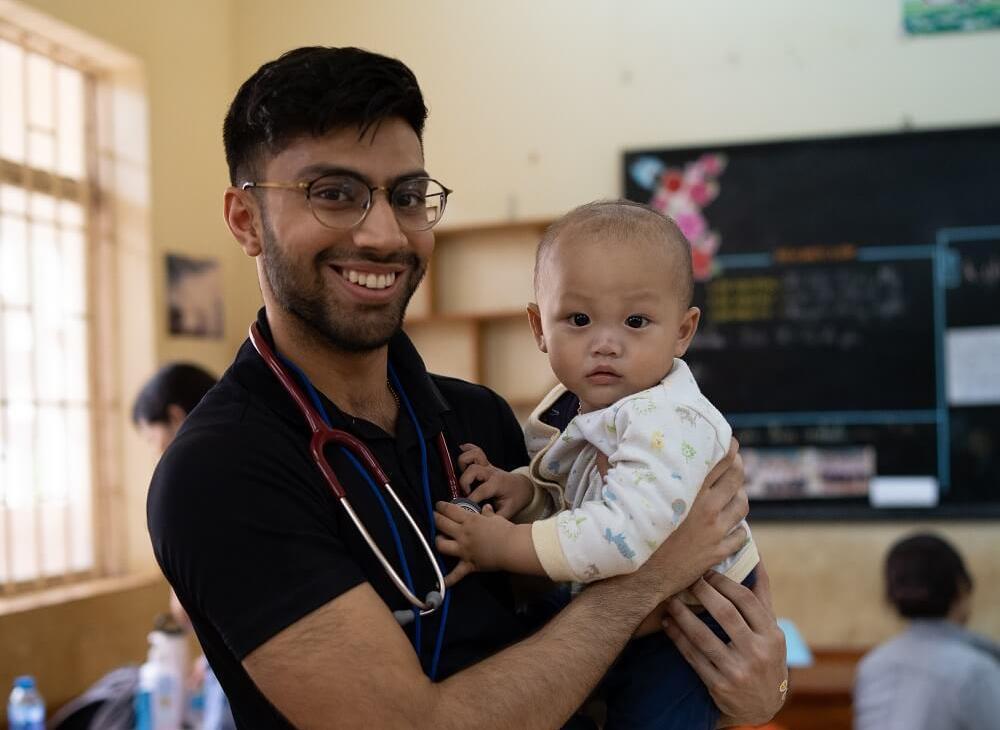Putting First-Year Skills to Work
TouroCOM Harlem Med Student Hamzah Ahmad Spent Summer on Medical Mission in Vietnam

Before starting his second year of medical school, Hamzah Ahmad spent the summer practicing what he learned during his first year of osteopathic school on a medical mission to Vietnam.
Hamzah, a student at TouroCOM Harlem, visited Vietnam as part of VnHOPE, an organization that provides humanitarian and medical aid to the country. Over a two-week period during June and July, Hamzah and his fellow volunteers set up two medical clinics in different locations around Saigon. The mission—composed of doctors and dentists as well as undergraduate, medical and optometry students—saw and helped more than 4,000 Vietnamese people. In addition, to attend the trip, each student volunteer was tasked with raising money to supply the medicine, vitamins and medical equipment given to patients.
This was the second time Hamzah visited Vietnam as part of VnHOPE. He joined a previous mission while he was a student at NYU.
“There’s a big difference between going as an undergraduate and as a medical student,” Hamzah explained. “I was one of two medical students, so we had a lot of one-on-one with the doctors through the various stations. The doctors we worked with gave us an understanding of the basics of different specialties. There were also symptoms that we could pick up from our first-year studies.”
Hamzah said that the group set up a range of specialty sections in the clinic, so that patients could meet with different doctors depending on their condition. The first clinic was set up in a school in the Dong Nai province and the second clinic was set up in an abandoned hospital in the Tay Ninh province.
In one case, the group set up a portable electrosurgical device to excise a tumor from one woman’s cervix. Other serious cases the doctors referred to a hospital. “There was a very limited amount we could do for some of the cases other than providing resources and pain management,” Hamzah added.
“We saw a number of children with holes in their ventricular walls,” recalled Hamzah. “We were able to tell the condition from listening with a stethoscope.” Afterwards, the clinic used an ultrasound to confirm the diagnosis. In another case, volunteers helped setup a wheelchair for a child who suffered a traumatic brain injury after falling off a motorcycle. “His parents were so grateful that they could give the child a degree of independence,” said Hamzah.
Hamzah said that he most enjoyed working in the pediatric section of the clinic, though it was occasionally the most difficult place to be.
“A father was giving us details about his son: How his son can’t speak and doesn’t recognize his own name,” said Hamzah. “It’s heartbreaking to have to tell a parent that their child might be mentally disabled.”
The trip has given Hamzah some ideas for his own future as a doctor.
“All these doctors are using their vacation time to set up a clinic,” said Hamzah. “I was amazed at their dedication and it inspires me to try to do something like that in the future. While not many of us spoke Vietnamese, you don’t need to know a language to understand a smile.”

